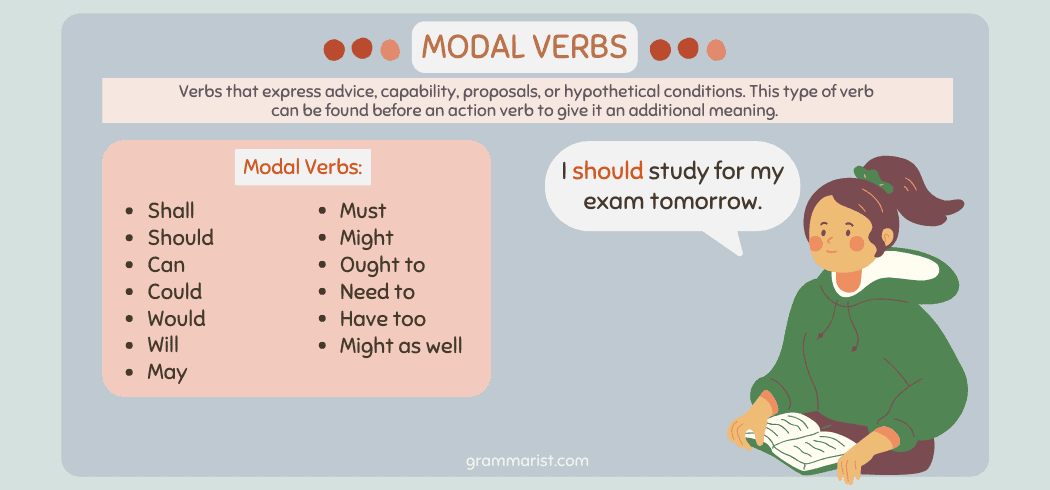Answer these three modal verbs exercises to test your understanding of the topic. Review its definition and uses and the application of different modal verbs in sentences.
What Are Modal Verbs?

Modal verbs are auxiliary verbs that express advice, hypothetical situations, capability, and requests. We use them alongside main verbs in different tenses to change their meanings.
Would, Could, Should
Use would when talking about impossible or unlikely situations and when making polite offers. For example:
- I would watch the new movie if I had enough time.
- Would you like an extra bed in your room?
Use could to suggest future possibilities, when showing past abilities, and making requests. For example:
- It could be hot later.
- She could play volleyball when she was young.
- Could you come with me to the office?
Use should for advice and when expressing something possible. For example:
- You should comb your hair.
- I wrote five pages, so I should get a good grade.
Might, Will
Use might to express possibility in the past, present, and future. You can also use it in formal situations when expressing permission. For example:
- He might have talked to the owner before welcoming more guests.
- Might I recommend a glass of wine?
Use will to express intention, make predictions, or for habitual behavior. For example:
- I will finish the scale model later.
- It will rain tonight.
- I know what you bake on every occasion. You will bake cookies tonight.
Are you ready to test yourself? These modal exercises with answers will challenge your understanding.